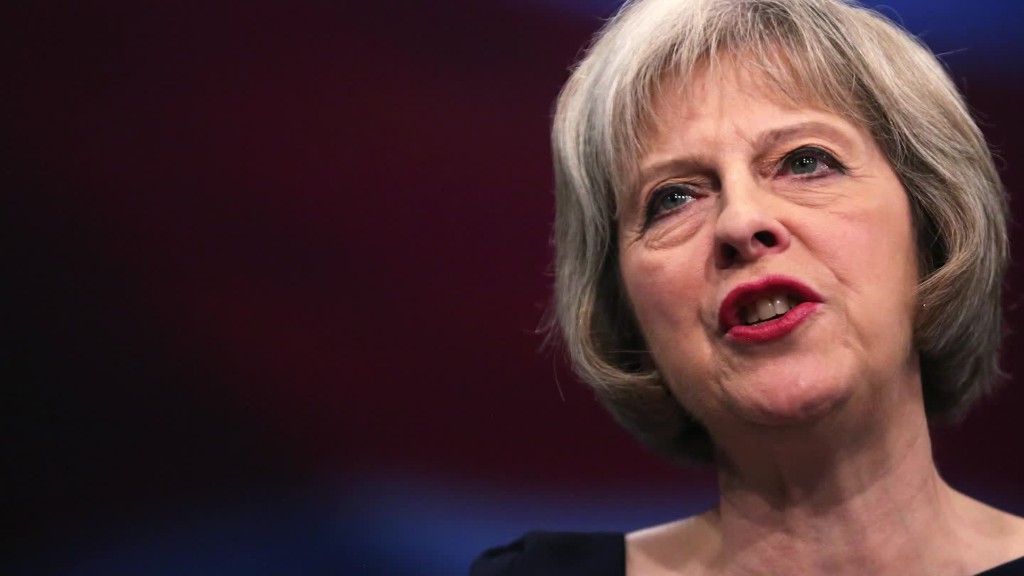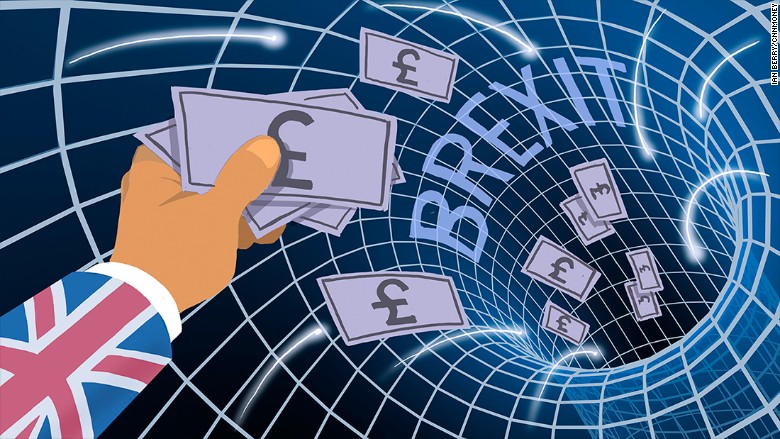
Brexit is happening. And it will be expensive.
The U.K. is officially leaving the European Union. While those campaigning for more sovereignty and tighter border controls rejoice, the government's own economic forecasters are warning of tough times ahead.
Divorce from the EU will be costly and it could weigh on Britain's economic prospects for years to come.
Here is why:
Weaker growth
The Office for Budget Responsibility, the U.K.'s independent fiscal watchdog, is forecasting growth of 2% in 2017. Prior to the Brexit vote last year, it expected growth of 2.2%.
The downgrade is even bigger for next year. The OBR expects growth of 1.6% in 2018, compared with its pre-Brexit forecast of 2.1%.
Related: 5 big obstacles to amicable divorce?
Higher debt
That slower growth will hit the government's revenues as business and workers pay less tax. That means it will have to borrow more.
The OBR expects government debt to reach £1.9 trillion by 2021, up from £1.74 trillion it forecast in March 2016.
That's £160 billion ($199 billion) of extra government borrowing, which will likely translate into cuts in spending or higher taxes.
"The U.K. will need to tighten fiscal policy over time to cover the gap," said Holger Schmieding, chief economist at Berenberg bank.
Related: Brexit promises: How many will be broken?

Slower job creation
The uncertainty surrounding Brexit is likely to hit jobs too. Private sector hiring confidence fell to its weakest level in three years, according to a survey by the ManpowerGroup published this month. The group asks managers about their hiring plans for the upcoming quarter.
Some companies will need to shift jobs abroad to safeguard their European operations. Major banks have already started this process, announcing the relocation of thousands of jobs.
The OBR expects the number of people claiming unemployment benefit to reach 830,000 this year, 50,000 more than it forecast in March 2016. That number will rise to 880,000 by 2020, roughly 10,000 more than it forecast before the Brexit vote.
It expects unemployment to rise gradually from 2018 and peak at 5.2% in 2020.
Related: Just 29% of Brits think Brexit will be good for the economy
Divorce bill
EU countries pay into a shared multi-year budget to finance things like infrastructure projects, social programs, scientific research and pensions for EU bureaucrats. The budget runs until 2020 and EU officials have said they expect the U.K. to honor its commitments even as it leaves the bloc in 2019.
EU Commission President Jean-Claude Juncker said the U.K. will be expected to pay roughly £50 billion ($62.4 billion) to settle its bill.


